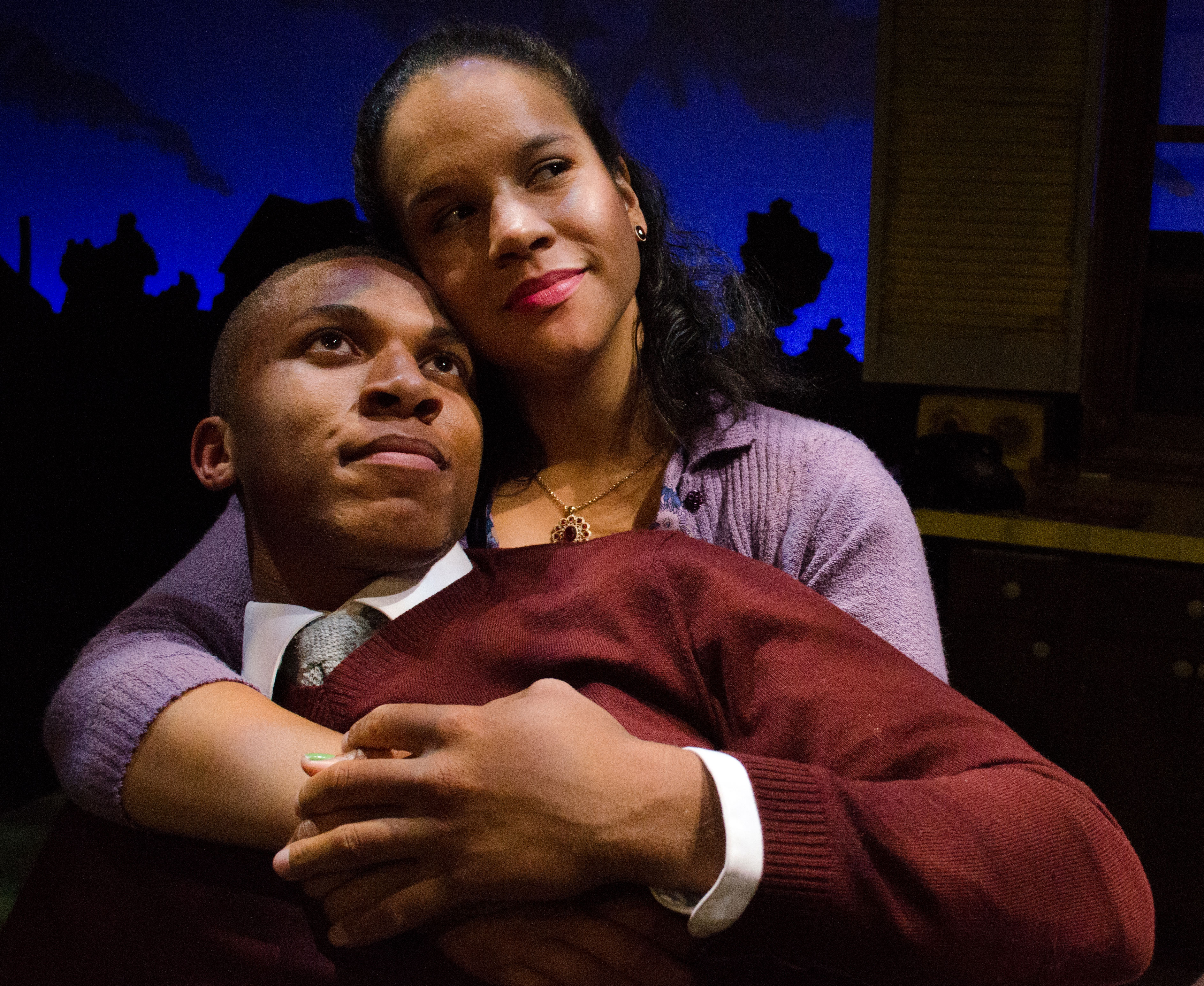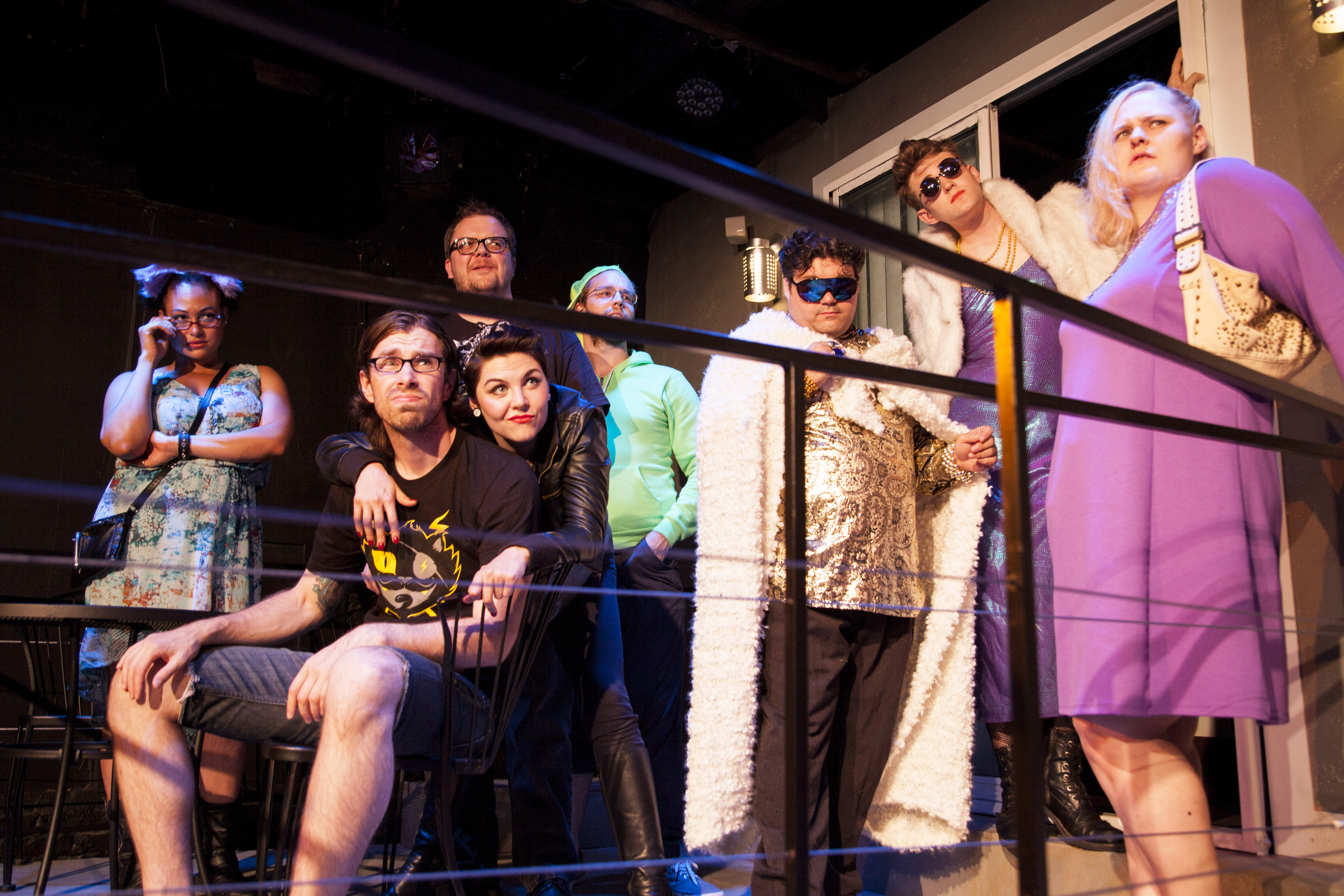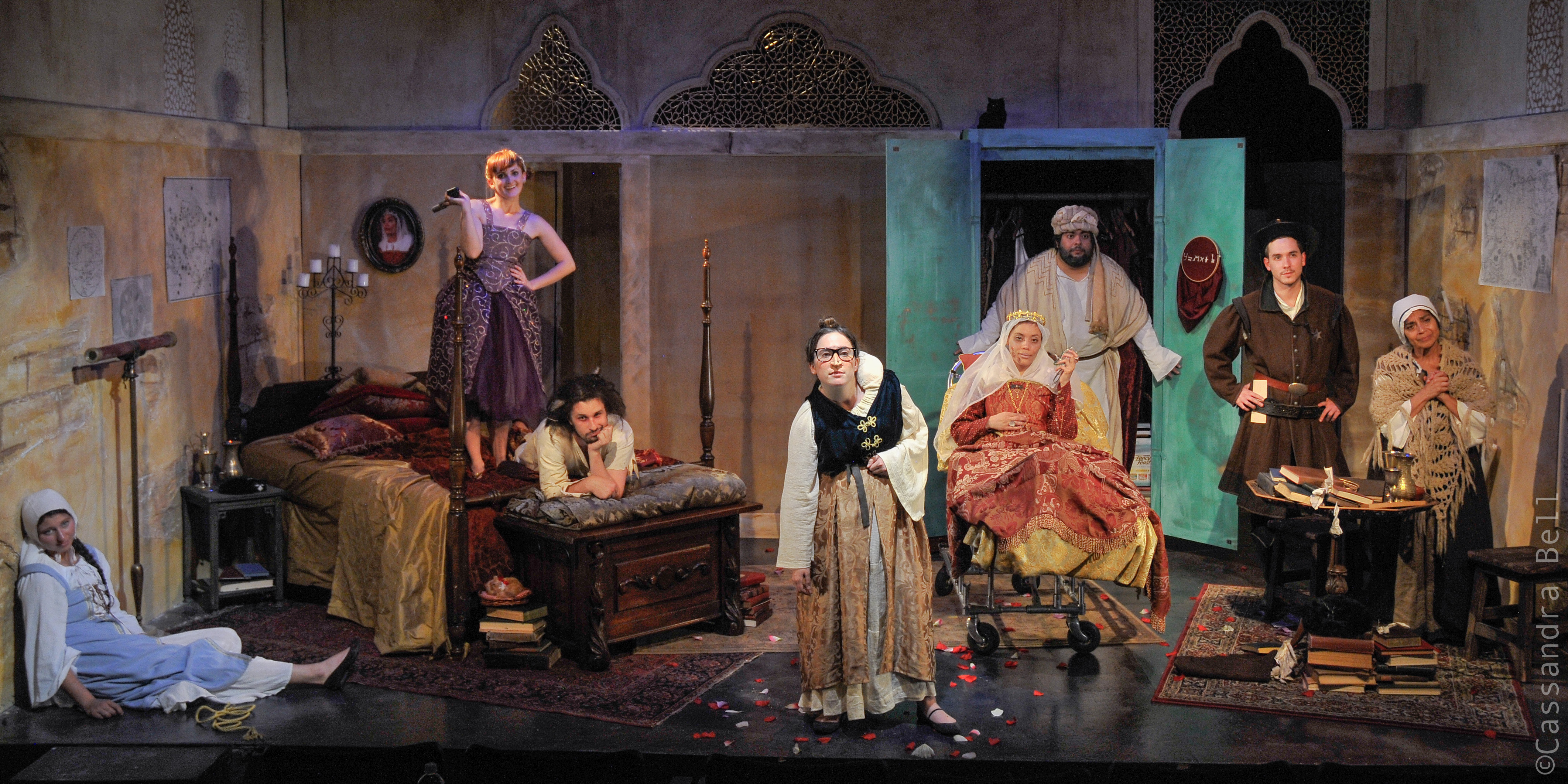The Edge of Our Bodies
Washington Ensemble Theatre, 608 19th Ave. E., 325-5105, washingtonensemble.org. $15–$20. 7:30 p.m. Thurs.–Mon. Ends April 14.
All these eons of coexistence, and women still haven’t found a place alongside men where they feel comfortable, secure, and themselves? How is it that feminine free agency, for survival’s sake, can be twisted into covert strategies of manipulation? WET’s regional debut of Adam Rapp’s drama uses its 90 minutes not to address the whys of this dilemma but to explore the dark process of deception—or is it self-deception? The play is one long dreamscape of recollection, often so beautifully poetic that you can close your eyes and be dazzled by the language alone.
Director Devin Bannon and actress Samie Spring Detzer agreed that Rapp’s 2011 play would make an ideal showcase for her, and there’s no arguing that she’s well cast as 16-year-old Bernadette, a prep-school ingenue who takes a day trip to New York to tell her boyfriend she’s pregnant. Along the way, this doe-eyed coquette—whose eyes dance almost imperceptibly between innocent victim and carny huckster—encounters men who have faces of “fat, sick babies,” whom she otherwise describes as “lunch meat” with “simian tufts of hair” billowing from their shirts.
But the veracity of Bernadette’s reverie is always in question. Rapp undermines her credibility early by showing that she has a gift not only for hyperbole, but for flights of fancy. She steps in and out of character while recalling her own performance in a recent school production of Jean Genet’s The Maids—where female characters also tease the audience for believing too much of what they say.
The pregnancy plot doesn’t matter much. This is a play about Bernadette’s mind, and how a young woman finds footholds in the world. If she’s a Little Girl Lost in the Big City, how then will she not fall prey to those who’d take advantage of her? For Rapp (whose Red Light Winter was seen at ACT last year), what Bernadette has is a quick mind and a mastery of storytelling such that her elaborate portraits of events, real or not, give her a sorceress’ skill to create fresh realities. And they give her the upper hand in every situation—unless of course those situations are fictions.
There’s a brief moment when a second uncredited performer appears as a maintenance man to clear the stage (here again, WET’s tech work is a marvel of economy), which only makes for more head-scratching. Has Bernadette been fantasizing the whole time? Is her entire yarn merely meant to test her potential as a pied piper? The Edge of Our Bodies becomes a spiral staircase of conundrums, bringing to mind Churchill’s famous adage about Russia: “a riddle wrapped in a mystery inside an enigma.” It’s that, and fodder for decades of conversations to come.
stage@seattleweekly.com








